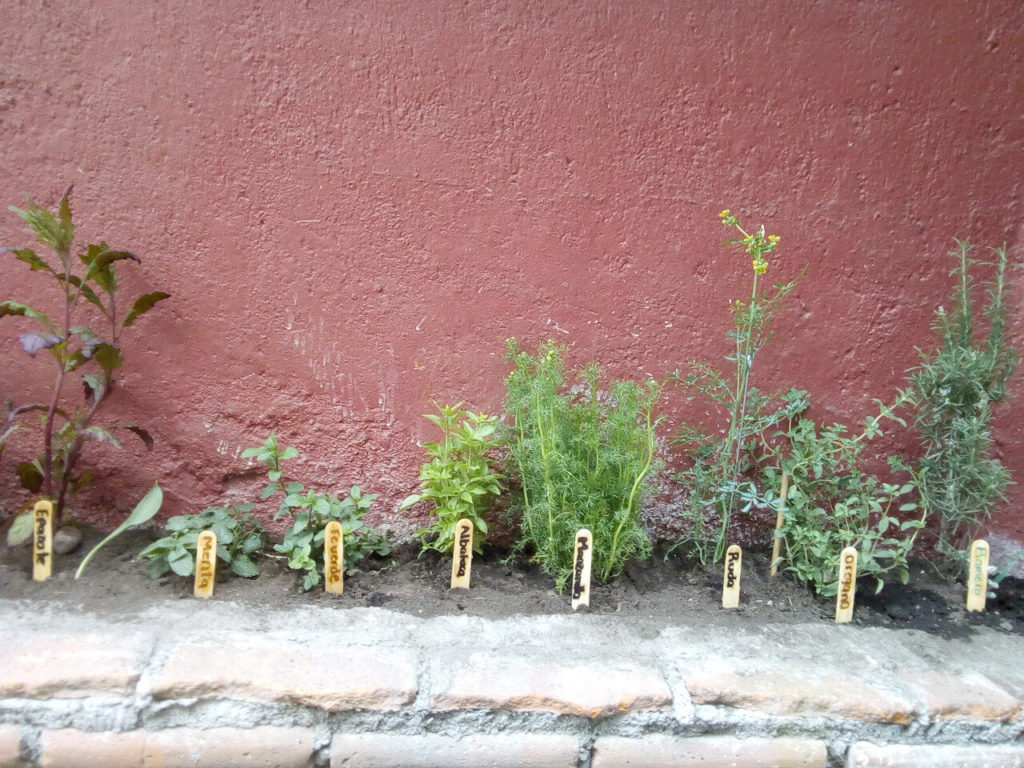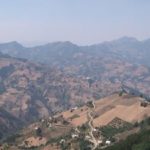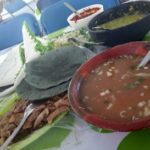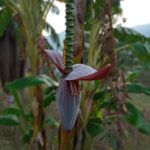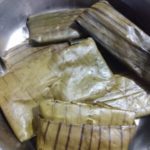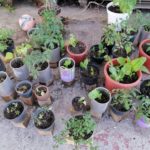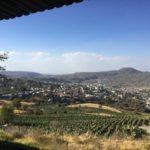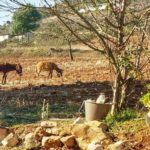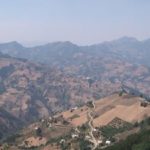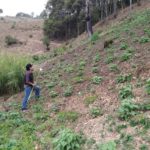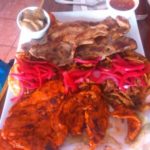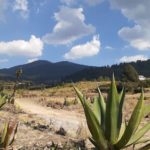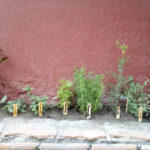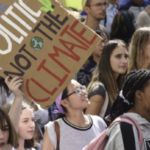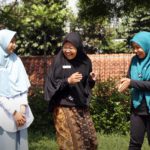A view from the perspective of Mexican children and young people
Have you ever heard of the concept of food sovereignty? Where does everything you eat come from? Who produces it? What is the role of youth and children in it?
Food sovereignty is the right of all communities to decide how they produce, market, and consume food. This right ensures they have healthy, nutritious, and ecologically sustainable food.
For people to achieve food sovereignty the current food systems need to change completely, which requires involvement from everyone. This is especially important for Mexico , since the rural community represents 23% of the total Mexican population. The population and urban areas are increasing, inequality rates are high, and poverty, malnutrition and hunger are still present. It is crucial that the food system fulfills the needs of everyone in a sustainable way, ensuring health, integrity, and economy, as well as the preservation of agrobiodiversity and the environment.
One of the greatest challenges of food sovereignty for Mexico is its food system, which stems from industry and the commercialization of agriculture. In this system, rural farmers, who mainly rely on farming for income, have been largely discriminated against. Their access to land and natural resources is limited, meanwhile the demand for local markets is decreasing since imported and subsidized foods are given preference. Rural communities are critical to Mexico given it’s extensive agrobiodiversity, rich gastronomic culture, and important biocultural heritage. Their knowledge is broad and significant for sustainable food production in the country. We cannot ignore the discrimination and oppression that rural farmers have suffered, we must question and criticize the food system in which we live. A Mexico without corn would not be Mexico, so what would Mexico be without its rural farmers?
Children and youth from rural communities are a key element to the permanence of this biological diversity and in the effort for food sovereignty. Despite this, rural children and youth face many challenges in order to have food security and sovereignty, and one of the biggest problems is that they are leaving the crop fields. It is not that the crop fields are boring or that youth are lazy to work, it is much more complex than that. Let me walk you through it briefly.
While the main problem is the industrial food system, another limiting factor is environmental degradation, climate change and bleak future scenarios. This degradation derives, in part, from industrial agriculture, which is characterized by being extractive and incorporates hybrid and transgenic species, produces cultural invasion and diseases, pollutes the soil, water, air, productive sectors and natural fields. It is evident that without soil, water or biological diversity, there will be no food sovereignty, so we must protect agrobiodiversity. This is proof that we must coexist in a positive way with nature.
The devaluation of rural life and urbanization have motivated young people to migrate to the cities, leaving agriculture without generational replacement. But the solution is not to try to keep young people and children in the countryside without a structural change, because it would not be viable or fair. Therefore it is urgent to ensure dignity for rural farming life. In the pursuit to find solutions, gender inequality must also be addressed,, since much of the work and support for agricultural activities is thanks to young women. We must continue to promote and strengthen feminism, which has included environmentalism as part of their movement, to eliminate gender inequality gaps
At the same time, we must recognize the collective action of many rural youth and children to protect the land and the environment, and to ensure their basic needs of care and protection. There is the error of perceiving rural children and youth as vulnerable and not as potential actors in their own community. This vision is part of what has long underestimated these groups, and has even damaged the view they have of themselves. Including youth in addressing food sovereignty should also involve processes that inform and empower. Visualizing the strengths of youth is part of the youth perspective, since the objective is to support our life project, accepting our diversity and promoting inclusion.
Then there are the youth and children who live in the cities, many of us even have a close relationship with rural towns. Some of us are daughters, sons, granddaughters, or grandsons of rural farmers. In my case, my father migrated to the city in search of a better future, but I lived with my grandmother and grandfather who are Totonacas and I learned about their culture and especially about their gastronomy. I want to protect those traditions and that cultural richness that I admire and enjoy so much. It’s important to understand that food sovereignty involves the whole food system, including urban areas. Consumption is part of that system. If you live in a city you can have an impact on that aspect: be aware of what you consume. It s part of having sovereignty over our bodies and over our lifestyles. It is increasingly difficult to be fully informed of the origin of our food and we are gradually losing control of our diet: a consumption model has been imposed on us. To achieve food sovereignty we need to support those who produce our food, produce for self-consumption, promote local commerce, diversify our gastronomy, and recover the knowledge of the culture with which we identify.
I would like to recognize all the young people who in search of a better quality of life joined activism, whether to fight for access to land, for a healthier environment, to assert our voices, for wanting to empower women, to demand our rights or for better opportunities for their community. Thanks to all those people, many of us have had our rights more strongly upheld; thanks to them our society is a little better. Unfortunately, many of them had their lives taken away, but we will continue to fight for them too.
I like to think that all the people reading this want to make their communities a better place. For this reason, I would like to invite you to take the My Planet My Rights online poll share your challenges, solutions and messages to world leaders on the environment and your rights. The results will contribute to the North American Regional Outcome Report and a Global Charter on the Children’s Rights and the Environment. Personally, it is very important to me that people from all the states of Mexico can make their voices heard in this important process.
Below you will find a gallery of photographs that many young Mexican people wanted to share for this article, including some images of the town where I grew up, Papantla, Veracruz. The intention is for you to observe the beautiful and diverse landscapes and the gastronomic culture that exist in Mexico, it is certainly admirable!
Silvia Yoselín Hernández Basurto is a Project Manager at naj hub AC, Young Earth Scientist and Member of the Intergenerational Advisory Committee of the Phoenix Consultation.
References
Casal, J., Garcia, M., Merino, R., & Quesada, M. (2006). Aportaciones teóricas y metodológicas a la sociología de la juventud desde la perspectiva de la transición. Papers(79), 21-48.
CEPAL/CELADE. (2010). Migración Interna. Boletín Demográfico(10), pág. 32.
Dirección Investigación y Estudios sobre Juventud. (Enero de 2008). Perspectiva de la juventud en México. Recuperado el 19 de enero de 2020, de Educación y Ciudadanía A.C.: http://www.educiac.org.mx/pdf/Biblioteca/Situacion_Juventudes/026Perspectiva_de_JuventudenMexico_IMJ.pdf
Dirección Investigación y Estudios sobre Juventud. (2019). Hacia una Perspectiva de Juventud. Recuperado el 19 de enero de 2020, de Gobierno de México: https://www.gob.mx/cms/uploads/attachment/file/484348/Hacia_una_Perspectiva_de_Juventud.pdf
FAO. (2014). Los Jóvenes y la Agricultura: Desafíos clave y soluciones concretas. Sida.
FAO. (2016). Abordando la migración joven rural por situaciones de vulnerabilidad. Recuperado el 04 de Febrero de 2021, de Organización de las Naciones Unidas: http://www.fao.org/3/a-c0136s.pdf
FAO. (2016). Juventud rural y empleo decente en América Latina. Santiago: Organización de las Naciones Unidas.
FAO. (2018). México rural del Siglo XXI. Ciudad de México: Organización de las Naciones Unidas.
Guiskin, M. (2019). Situación de las juventudes rurales en América Latina y el Caribe (Vol. 181). Ciudad de México: Comisión Económica para América Latina y el Caribe (CEPAL).
La Vía Campesina. (Marzo de 2014). juventud y agricultura. boletín Nyéléni(17).
Leporati, M., Salcedo, S., Jara, B., Boero, V., Munoz, M. (2014). La agricultura familiar. En Agricultura familiar en América Latina y el Caribe: Recomendaciones de política (págs. 17-27). Brazil, Chile, México: Organización de las Naciones Unidas para la Alimentación y la Agricultura.
Paniagua, P. (13 de junio de 2017). La juventud y el futuro. Revista de estudios de juventud, 6(101), 77 – 87.
Rosset, P., & Martínez, M. E. (2014). Soberanía reclamo mundial. Ecofronteras, 18(51), 8 – 11.



